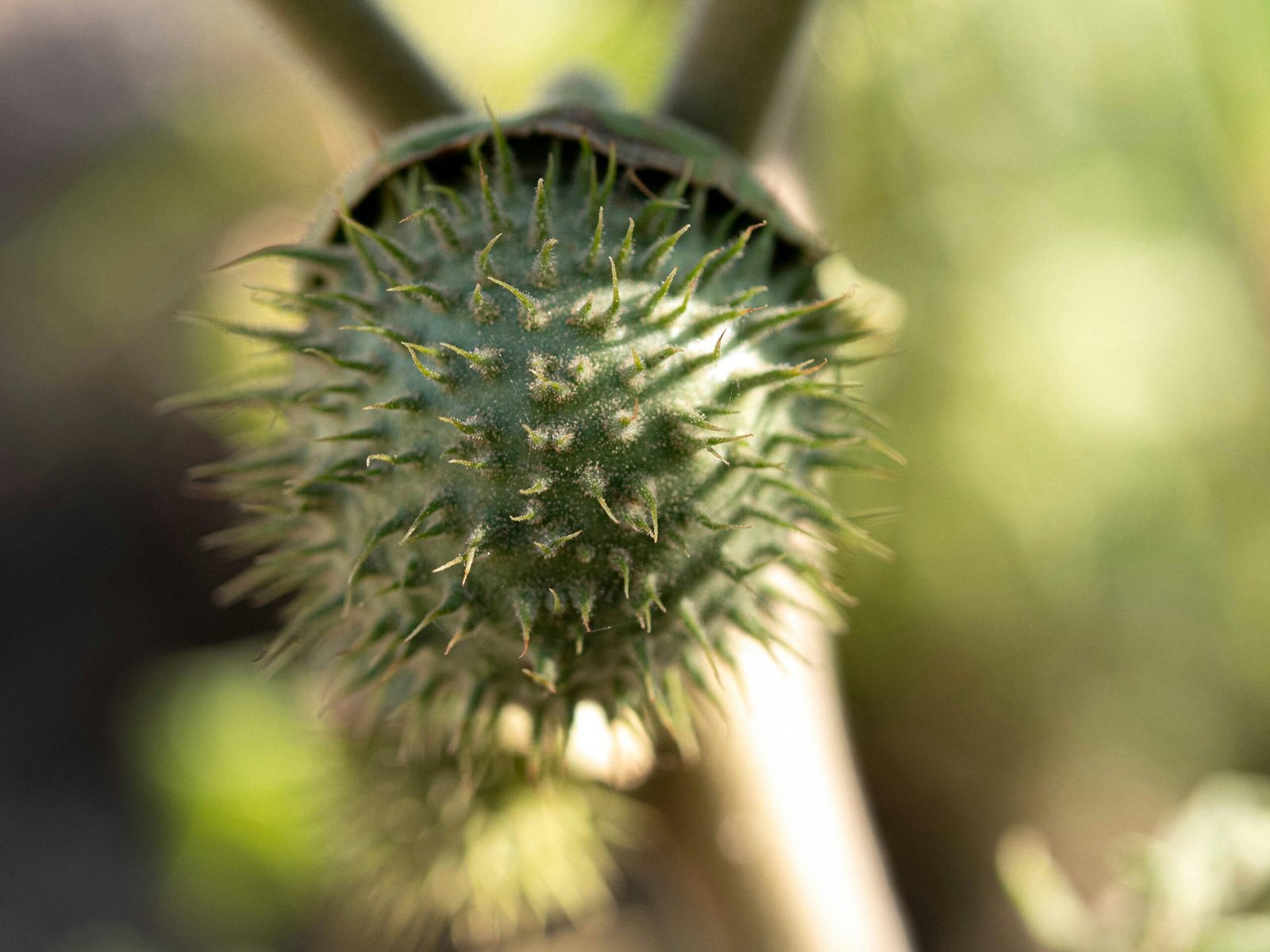Table of Contents

Introduction to Herbal Sleep Remedies
The pursuit to improve sleep quality has become a focal point in contemporary discussions about health and wellness. As modern lifestyles often lead to increased stress and irregular sleep patterns, there is a growing interest in natural and holistic approaches to improve sleep. One approach involves the use of herbs for better sleep. Herbal natural sleep aids have gained popularity for their potential to promote restful sleep without the side effects commonly associated with conventional medications.
Quality sleep is vital for overall well-being, affecting everything from cognitive function to physical health. Insufficient or poor-quality sleep can lead to a myriad of health issues, including weakened immune response, impaired memory, and increased risk of chronic conditions such as obesity and heart disease. Understanding and addressing sleep issues can therefore have a profound impact on one’s quality of life.
This blog post, we will explore herbs known for their sleep-promoting properties. These herbs have been studied for their efficacy in improving sleep quality and duration, supported by scientific evidence. By delving into natural remedies used for centuries, we aim to provide insights into how these herbal solutions can be integrated into modern sleep routines. Whether you are seeking an alternative to over-the-counter sleep aids or looking to enhance your sleep naturally, understanding the benefits and uses of these herbs could be a valuable addition to your wellness toolkit.
How Herbs Can Aid Sleep
Herbs have been utilised for centuries for better sleep through their unique physiological and psychological benefits. The primary mechanism which herbs aid sleep, is by interacting with the body’s natural sleep-wake cycle and the nervous system. Many herbs contain compounds that can reduce anxiety, relax muscles, and promote a sense of calm, all crucial for a restful night.

One of the core ways herbs support sleep is by influencing neurotransmitters in the brain. For example, some herbs increase levels of gamma-aminobutyric acid (GABA), a neurotransmitter that inhibits neural activity, leading to relaxation and reduced anxiety. Valerian root is a herb known to boost GABA levels, making it easier to fall asleep and stay asleep.
Herbs also regulate the body’s circadian rhythm, the internal clock that dictates sleep-wake cycles. Melatonin, a hormone that signals the body to prepare for sleep, can be naturally boosted by herbs like chamomile and passionflower. These herbs help synchronise the circadian rhythm, ensuring more consistent sleep patterns and overall sleep quality.
Additionally, herbs can have a direct calming effect on the nervous system. Lavender, for instance, has been shown to lower heart rates and reduce blood pressure, which helps the body transition into a state more conducive to sleep. This sedative effect is particularly beneficial for those who struggle with sleep due to stress or anxiety.
Muscle relaxation is another benefit provided by certain herbs. Herbs like kava and lemon balm possess muscle-relaxant properties that help alleviate tension and discomfort, making it easier for the body to unwind. This relaxation extends beyond the physical, also calming the mind and creating an optimal environment for sleep.
In summary, the multifaceted approach of herbs in aiding sleep highlights their potential as natural remedies for sleep improvement. By reducing anxiety, promoting relaxation, and harmonising with the body’s sleep-wake cycle, herbs offer a holistic way to enhance sleep quality and duration.
Top Herbs for Better Sleep
Achieving a restful night’s sleep can often be facilitated by incorporating natural remedies into one’s nightly routine. Among the most effective herbs for promoting sleep are Valerian root, Chamomile, Lavender, Passionflower, and Lemon Balm. Each of these herbs has a unique origin, traditional use, and scientific backing that underscores its efficacy in enhancing sleep quality.
Valerian Root
The valerian root, derived from the Valeriana officinalis plant, has been used for centuries in Europe and Asia as a remedy for insomnia and anxiety. Its sedative properties are attributed to valerenic acid, which interacts with gamma-aminobutyric acid (GABA) receptors in the brain. Modern studies, such as those published by the National Institutes of Health, indicate that Valerian root can help reduce the time it takes to fall asleep and improve sleep quality.

Chamomile
Chamomile is a well-known herb traditionally used in herbal medicine to promote relaxation and sleep. Originating from the Asteraceae family, this herb contains apigenin, an antioxidant that binds to specific receptors in the brain that may decrease anxiety and initiate sleep. A scientific review found in the Molecular Medicine Reports supports Chamomile’s effectiveness in reducing insomnia symptoms and improving sleep quality.
Lavender
Lavender, a fragrant herb native to the Mediterranean region, has long been employed for its calming and sleep-inducing properties. The essential oil from Lavender flowers contains linalool and linalyl acetate, compounds that have been shown to have sedative effects. Research published in the Journal of Alternative and Complementary Medicine suggests that inhaling Lavender essential oil can significantly improve sleep quality and duration.
Passionflower
Passionflower, or Passiflora incarnata, an ingredient in our Sweet Dreams blend. Originating from the southeastern United States, traditionally been used to treat anxiety and insomnia, its calming effects are due to its ability to increase levels of GABA in the brain. Clinical studies, including those cited in the Journal of Clinical Pharmacy and Therapeutics, demonstrate that Passionflower can help improve sleep latency and sleep quality.
Lemon Balm
Lemon Balm, used in our Sereni-tea blend is a member of the mint family, and has been used since the Middle Ages to reduce stress, anxiety, and promote sleep. This herb contains rosmarinic acid, which enhances the availability of GABA in the brain. Recent studies, such as those reported in the Mediterranean Journal of Nutrition and Metabolism, have shown that Lemon Balm can help improve sleep patterns and reduce restlessness.
By integrating herbals tea such as our Sereni-tea or Sweets Dreams into a nightly routine, individuals may find a natural and effective way to enhance the quality of their sleep. Explore the provided external links to reputable sources for further information on herbal sleep remedies and improving sleep quality.
Incorporating Herbs into Your Nightly Routine

Integrating herbal sleep remedies into your nightly routine can be a simple yet effective way to improve your sleep quality. Various forms of herbal preparations can be easily incorporated into your evening activities. These include teas, tinctures, capsules, and essential oils. Each method can be tailored to fit your preferences and lifestyle.
One of the most popular and accessible ways to use herbs for sleep is by preparing herbal teas. To make a soothing herbal tea select your preferred herbs, such as Bree’s Herbal Teas Sweet Dreams blend, chamomile, valerian root, or lavender. Boil water and pour it over a teaspoon of the dried herbs, allowing it to steep for 5-10 minutes. Strain the tea, and it’s ready to drink. Adding a touch of honey can enhance both the flavour and the calming effects.
Tinctures are another effective way to incorporate herbs into your routine. These concentrated liquid extracts are taken by placing a few drops under the tongue or mixing them into a small amount of water. Tinctures offer a quick and potent means of delivering the herb’s benefits. Commonly used tinctures for sleep include passionflower, valerian root, and lemon balm.
For those who prefer a more convenient option, herbal capsules can be taken with water before bedtime. These capsules often contain standardised extracts, ensuring consistent potency and ease of use. Popular choices include capsules of valerian root, melatonin combined with herbs, and ashwagandha.
Essential oils are another excellent way to incorporate herbs into your nightly routine. Using a diffuser, add a few drops of lavender or chamomile essential oil to create a calming atmosphere in your bedroom. Alternatively, you can mix essential oils with a carrier oil and apply it to pressure points during a bedtime massage. This method delivers the benefits of the herbs and promotes relaxation through touch.
Consistency is key when using herbal remedies for sleep. Incorporating these methods regularly into your nightly routine can help establish relaxation leading to more restful and rejuvenating sleep.
Combining Herbs with Sleep Hygiene Practices
Combining herbal remedies with good sleep hygiene practices can significantly improve sleep quality. While herbs like valerian root, chamomile, and lavender have been known for their calming properties, integrating these natural sleep aids with established sleep hygiene strategies can yield even better results.
One of the fundamental principles of sleep hygiene is creating a sleep-friendly environment. This includes keeping your bedroom cool, dark, and quiet. Investing in a comfortable mattress and pillows can also make a substantial difference. Adding natural sleep aids, such as lavender-scented pillows or chamomile-infused sleep sprays, can further promote relaxation, creating a serene atmosphere to improve sleep quality.

Establishing a regular sleep schedule is another crucial aspect of sleep hygiene. Going to bed and waking up at the same time, every day helps regulate your body’s internal clock. To enhance this routine, consider incorporating herbal teas with ingredients like valerian root or passionflower into your bedtime ritual. These herbs can help signal to your body that it’s time to wind down and prepare for sleep.
It’s also important to avoid stimulants before bedtime. Caffeine, nicotine, and even heavy meals can interfere with your ability to fall asleep. Instead, opt for a calming herbal tea, such as chamomile or lemon balm, which can soothe the nervous system and promote a more restful night.
The synergistic effects of combining herbal remedies with sleep hygiene practices cannot be overstated. A more comprehensive guide on sleep hygiene can be found in our detailed post on sleep hygiene. By integrating these approaches, you can create a holistic routine that supports better sleep and overall well-being.
Case Studies and Personal Testimonials
Exploring the realm of natural remedies for sleep, many individuals have turned to herbs with remarkable success. One notable case is that of Sarah, a marketing executive struggling with chronic insomnia. She found incorporating Bree’s Herbal Teas Sweet Dreams into her nightly routine allowed her to fall asleep faster and experience fewer nighttime awakenings. Within a month, Sarah reported a significant improvement in her overall energy levels and mental clarity during the day.
Similarly, John, a retired teacher, faced issues with restless leg syndrome that disrupted his sleep and began using Sweet Dreams. Over several weeks, John noticed a marked reduction in his symptoms, leading to more consistent and restful sleep. This change enhanced his physical well-being and improved his mood and cognitive function.
A different story comes from Emma, a college student grappling with anxiety-induced insomnia. She turned to our Sereni-tea, a herbal blend known for its calming properties. Emma found that drinking Sereni-tea an hour before bed helped ease her anxiety, making it easier to drift into a deep sleep. Her academic performance improved due to better rest and she felt more balanced and less stressed throughout the day.
These personal testimonials illustrate the diverse ways in which Bree’sHerbal Teas can positively impact sleep quality. Whether addressing issues of insomnia, restless leg syndrome, or anxiety, individuals have found relief and improved their overall quality of life through these natural remedies. The success stories of Sarah, John, and Emma underline the potential benefits of integrating herbal solutions into one’s sleep hygiene practices.
Conclusion and Further Resources
In this blog, we have explored the various herbs that aid in improving sleep quality. From chamomile and valerian root to lavender and passionflower, these natural remedies have a long history of promoting restful sleep. The potential benefits of incorporating these herbs into your nightly routine are substantial, offering a holistic approach to achieving better sleep without the side effects often associated with conventional sleep aids.
It is important to remember that while herbs can be highly effective, they are most beneficial when used as part of a comprehensive strategy that includes good sleep hygiene, a balanced diet, and regular exercise. By integrating these practices, individuals may improve their overall sleep quality.
We encourage readers to explore herbal remedies and consider incorporating them into their nightly regimen. For those interested in a specific product designed to enhance sleep, our Sweet Dreams is tailored to promote restful sleep. This product was formulated by a medical herbalist with carefully selected ingredients known for their sleep-enhancing properties.
For readers who wish to delve deeper into the science behind herbal sleep aids, we recommend the following external resources and studies:
- National Center for Biotechnology Information (NCBI) on Chamomile and Sleep
- ScienceDirect on the Efficacy of Valerian Root
- NCBI on Lavender and Its Sleep Benefits
- ScienceDirect on Passionflower and Sleep Quality
By staying informed and exploring these natural options, you can make educated decisions about improving your sleep health. We hope this information has been helpful and inspires you to consider the benefits of herbal sleep aids as part of your journey towards a more restful night.






Leave a Reply